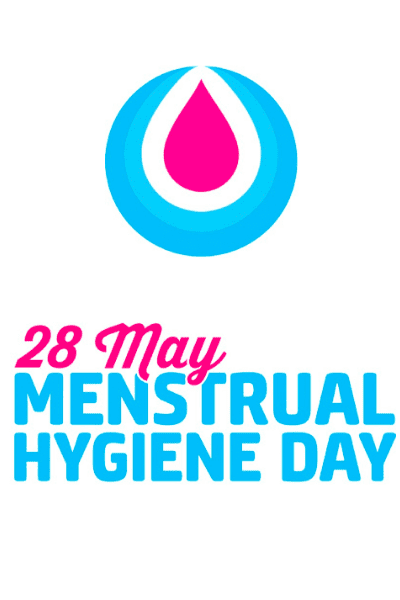Table of Contents
Menstrual Hygiene Day, 28th May 2018
Menstrual Hygiene Day takes place on the 28th May every year and aims to raise awareness about the importance of good menstrual hygiene management (MHM).
Menstrual Hygiene Issues Around The World
Menstrual hygiene is understandably a more severe problem in developing countries where there is limited education about menstrual hygiene and sanitary products are less available. 41% of girls in developing countries miss up to five days of school every month due to menstruation.1
There is a severe shortage of affordable and hygienic sanitary products in less economically developed countries, meaning that girls are often left to use old rags or pieces of cloth, which can increase the risk of reproductive tract infections (RTIs). Sanitation facilities are a scarcity in a number of countries. 2.4 billion people around the world lack access to adequate sanitation facilities and this has a particularly negative effect on the ability of women and girls to privately and hygienically manage menstruation.
The long-term aim of Menstrual Hygiene Day is to improve the access to feminine hygiene facilities and products around the world, and to ensure girls and women can take control of their menstrual hygiene.
Good Menstrual Hygiene Management
There are a number of requirements that need to be in place to ensure high standards of menstrual hygiene management amongst women and girls around the world.
Education about menstruation is extremely important. Without the required knowledge it is difficult for girls and women to understand how to manage their menstrual hygiene safely. When the education is in place, it is then important to make sure that feminine hygiene supplies are available and affordable.
Public washrooms must then provide the appropriate facilities for girls and women to dispose of sanitary waste in a safe and hygienic manner.
Hygienic Disposal of Feminine Sanitary Waste
Public female washrooms should supply all the facilities necessary for women to hygienically dispose of feminine sanitary waste.
In 1955, Citron Hygiene transformed feminine hygiene by introducing the first feminine hygiene disposal unit. Since then the feminine hygiene unit has been developed to provide not just a way for women and girls to dispose of sanitary waste, but also as a means of odour control and a way to minimise the spread of harmful germs. Innovation has led to the development of compact designs for washrooms, helping to the make the most of the space available.
All sani bins from Citron Hygiene make use of ActivapTM, the leading feminine hygiene germicide. The vapour phase action kills 99.999% of germs in FHUs to reduce harmful bacteria. If left untreated, FHUs can become breeding grounds for harmful viruses such as HIV and Hepatitis B and C.
In public washrooms, it should be a priority to minimise cross contamination and ensure that women have an appropriate place to dispose of sanitary waste.
Menstruation Matters
Menstruation is a natural part of a female’s development and it is vitally important to make sure that girls and women have access to the supplies and facilities to take control of their personal menstrual hygiene management. Menstrual Hygiene Day helps to raise awareness about the issues and will hopefully bring about much needed change.
Support Menstrual Hygiene Day on social media by using the hashtag #menstruationmatters
References
